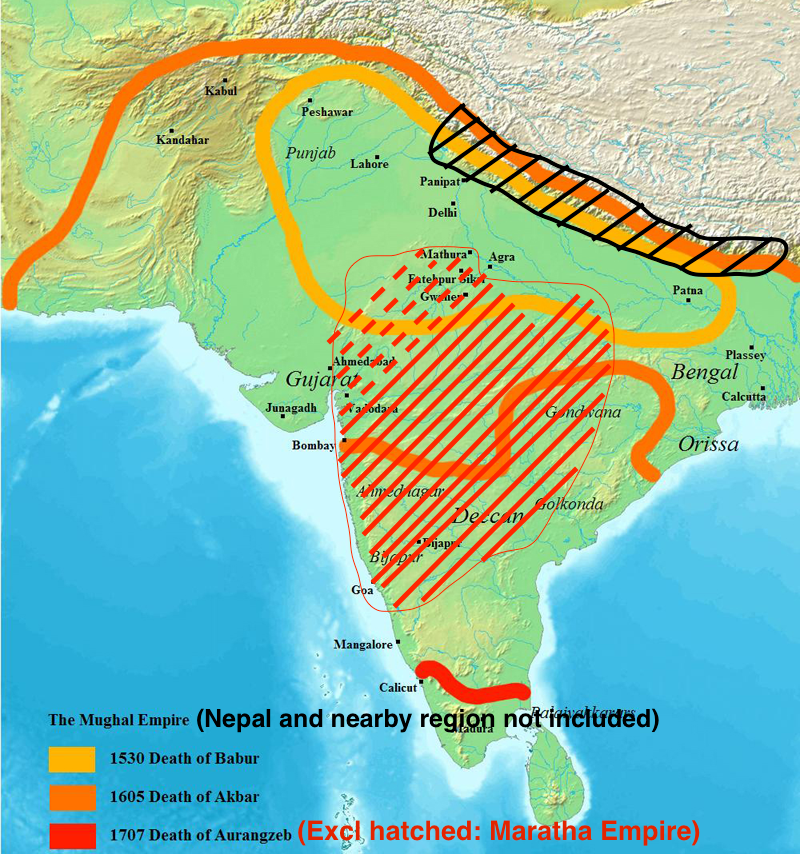|
Maktubat
Maktubat, Mektubat (Arabic: مکتوبات) or Makatib, Mekatib (Persian: مکاتیب), commonly translated as The Letters may refer to the following works: *''Makatib'' (''Maktubat al-Rabbani''), the book containing Ahmad Sirhindi's letters to his disciples, family members, and men of state and of influence * ''Maktubat'', a collection of Ahmad Sirhindi letters to Mughal rulers and other contemporaries * ''Maktubat'', by Esat Erbili *''Mektubat-ı Sırrı Paşa'', by Giritli Sırrı Paşa *''Mektubat'', a book from ''Risale-i Nur The Risale-i Nur Collection (, ) is a collection of religious writings by Said Nursî, a Kurdish Islamic Scholar from Bitlis region of Turkey between the 1910s and 1950s. Unlike what is often claimed, it is not a tafsir (commentary on the Qur'an ...'' collection by Said Nursi See also * Maktub (other) {{disambig ... [...More Info...] [...Related Items...] OR: [Wikipedia] [Google] [Baidu] |
Ahmad Sirhindi
Ahmad Sirhindi (1564 – 1624/1625) was an Indian Islamic scholar, Hanafi jurist, and member of the Naqshbandī Sufi order who lived during the era of Mughal Empire. Ahmad Sirhindi opposed heterodox movements within the Mughal court such as Din-i Ilahi, in support of more orthodox forms of Islamic Law. His act of preserving and urging the practice of Islamic orthodoxy has cemented his reputation by some followers as a Mujaddid, or a "reviver".Josef W. Meri, Medieval Islamic Civilization: An Encyclopedia, (Routledge 1 Dec 2005), p 678. While early and modern South Asian scholarship credited him for contributing to conservative trends in Indian Islam, more recent works, such as Abul Hasan Ali Hasani Nadwi and commentaries from western scholars such as Ter Haar, Friedman, and Buehler, have pointed to Sirhindi's significant contributions to Sufi epistemology and practices. Biography Sirhindi was born on 26 May 1564 in the village of Sirhind, Punjab to a Punjabi Muslim family ... [...More Info...] [...Related Items...] OR: [Wikipedia] [Google] [Baidu] |
Esat Erbili
Esad Erbili or Mehmed Esad Efendi (1847 – March 1931) was a sheikh of the Naqshi- Khalidi Sufi order. At the beginning of World War I, he took a branch of the Naqshbandiyah school of thought to Istanbul. Early years Esad Erbili was born in Arbil (present-day Kurdistan Region, Iraq) in 1847. He was the 30th Chain of the Golden Silsila, entitled to the honorific title ''Sayyid'' on both his mother's and father's side. His father, Master M. Said, was the Sheikh of Khalidî tekke in Arbil, while his grandfather, Master Hidayetullah, was a khalifa. After Erbili completed his education in Arbil and Deyr, he became affiliated with the Naqshi-Khalidi Sheikh Taha’l-Hariri at age 23. Five years later he was given the degree of the caliphate. Career in Istanbul Returning from Hajj after the death of Sheikh al-Hariri, Erbili came to Istanbul in 1875. He first stayed at the Besiraga Dargah in Salkimsogut, but when his followers and visitors increased, he left and settled in the muezz ... [...More Info...] [...Related Items...] OR: [Wikipedia] [Google] [Baidu] |
Giritli Sırrı Pasha
Giritli Sırrı Pasha ("Sırrı Pasha the Cretan") was a 19th-century Ottoman Empire, Ottoman administrator and man of letters of Turkish Cretan origin. He was born in 1844 in Kandiye, Crete, Ottoman Empire as the son of Helvacızade Salih Tosun Efendi. He started out as a clerk in the local Ottoman bureaucracy in Crete and later came to Istanbul, pursuing an education with a particular religious emphasis. Climbing through the hierarchy, he served as governor of Trabzon, Kastamonu, Ankara, Sivas and Baghdad, and was noted as a successful administrator. He published his writings of a personal and political nature under the title "Letters of Sırrı Paşa" (''Mektubat-ı Sırrı Paşa''). Yet another collection is his commentaries (tefsir) of various verses of the Koran, united under the titles ''Sırr-ı Kur'an'' (the secret of Koran), ''Sırr-ı insan'', ''Sırr-ı Tenzil'', ''Sırr-ı Meryem'' and ''Ahsenü'l-Kasas''. The last one in particular, on the theme of the stories of Jo ... [...More Info...] [...Related Items...] OR: [Wikipedia] [Google] [Baidu] |
Risale-i Nur
The Risale-i Nur Collection (, ) is a collection of religious writings by Said Nursî, a Kurdish Islamic Scholar from Bitlis region of Turkey between the 1910s and 1950s. Unlike what is often claimed, it is not a tafsir (commentary on the Qur'an), apart from the volume ''İşaratü'l-İ'caz'', which is an exegesis of verses 1:1-2:39. Risale-i Nur collection was penned amid the transition between late Ottoman Empire and establishment of new Turkish Republic. During this time period, a series of strong oppressive regulations had been put in place, such as the ban of all religious practices in their original Arabic form throughout the country, prohibiting the citizens from wearing religious dressing and refuters receiving punishment in form of death penalty. During the time period Risale-i Nur collection was publicized, measures against its circulation had been taken. The books include an analysis of Islamic sources and a reinterpretation of the text for the "mentality" of Said Nurs ... [...More Info...] [...Related Items...] OR: [Wikipedia] [Google] [Baidu] |
